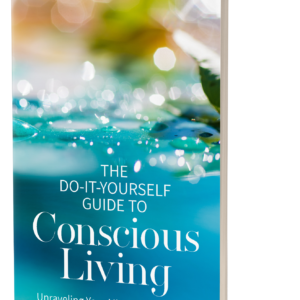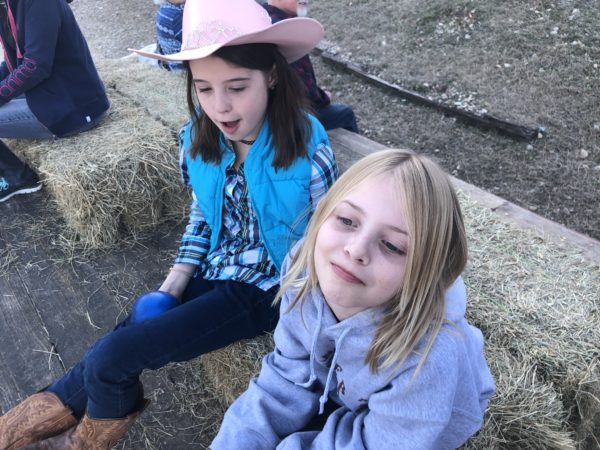Okay, before you guys get upset, I’m using the term “snowflakes” in the title and in the session because that’s kind of a thing now, and the label (and I hate labels) has become recognizable in our culture.
The radio show from last night was awesome, but the HUB page hasn’t been updated so the previous show is still available. I’ll post it when the producer has the show up! Yesterday, I interviewed Lorie Givens, author of one of the BEST books I’ve ever read: The Do-It-Yourself Guide to Conscious Living: Unraveling Your Mindsets in 21 Days. In three weeks, only 20 minutes of reading will leave you changed…for the better! Here’s the information she sent me:

And as promised, here are the rest of the videos and photos from my trip with Arleen to the Mayan Dude Ranch in Bandera, TX:

And now for the main event! The transcript follows. Please be sure to book a session with Jennifer by clicking HERE before she gets too booked up. She’s amazing!
Elisa: Hello, Jennifer Doran, how are you doing?
Jennifer: Good, how are you?
Elisa: Good and I hear our boy’s been communing with you a lot.
Jennifer: Yes, yes, he’s been with me all day.
Elisa: You sound really thrilled about that.
Jennifer: No, it’s been good. He warned me this morning. He was like I’m going to come into all your readings, and then I’ll be here when you do the meeting with my Mom.
Elisa: Hey, so he’s been a busy boy. So, do people ask for him or some of them don’t even know him maybe?
Jennifer: Both. Sometimes people do ask for him, sometimes he just pops in and people don’t know him or they do know him and they’re always, always grateful to see him.
Elisa: Awe. He’s such an eloquent dude.
Jennifer: Yes.
Elisa: All right, hi Erik, I love you.
Erik: Hi, I love you too.
Elisa: By the way Erik, I saw your second-grade teacher, Miss Baziman, now Mrs. Shanahan, and I let her hear that EVP you made, love you Mom, and she freaked out. She thought that was so awesome. Cool. All right today we’re going to talk about, why people today, nowadays are so easily offended, the reason I thought of this is Christina my daughter has the blog, ChristineBrawly.com, you got to check it out, and my husband told her, her father told her that there’s this new law in some parts of UK, maybe it’s in one school, I don’t know, that you can not wear Montclair jackets, Canada Goose jackets and some other jacket because it poverty shames. So, the government is telling us what we can and can not wear, so they don’t have faith in the people who can’t afford that, anyway who would give their kid a $1000 jacket? It’s their decision. So, anyway I can’t remember if it was Christina or my husband who said awe, they’re just snowflakes, but they both have this sarcastic wit but the most super compassionate and very loving, and Oh my God, the hate came pouring in to her YouTube channel. So, you know she did a YouTube, why are people so easily offended and I want Erik, I want you to help us explore that, what’s going on? I mean this is has not been, I’m going to say 10 years ago I don’t remember all this, everybody just has all these hurt tender feelings.
Erik: Yeah, over the last 5 years in particular it’s gotten out of hand. There’s a few different things going on here, but the number one problem is that the more people that do this, the more people think that they should do this. So, it’s like that mob mentality basically.
Elisa: So, it’s the snowflakes getting into a snowball effect (laughing)
Jennifer: Yeah pretty much, it is like a snowball effect.
Erik: There’s a certain few people who just don’t have enough to do and they really truly just go and they look for things to be offended about, to stir the pot, they enjoy that. It’s not a few, it’s quite a lot, and that’s all they do, some people spend their entire day just looking for things to be offended about and then they post about it and you know of course the social media and that stuff makes this a lot worse than it used to be because right there at the touch of a finger somebody from halfway around the world can be offended by something that you put up on your Facebook. That does contribute to it. The people who troll, they really are bringing about change, it’s not going to look good right now but ultimately, it’s like airing all the dirty laundry, getting everything out there. It’s like when you have a fight and you say all this stuff, even if crossed your mind for a second you just get it out there and this may take years because it’s on a global scale but when we get to the other side of it, it is going to be better.
Jennifer: Okay, he just showed me a roller coaster, and it’s like as if you’re going up, up, up and then you get over.
Erik: You’re still on this (on the incline).
Elisa: So, how will trolling or getting it all out help, will it just show the masses how, wow this is not cool, maybe we should change, (inaudible)
Erik: Ultimately, but here on Earth there can’t be any emotion that lasts for a very long time. You can’t stay in an absolute panic attack for years, you just can’t, your body can’t do it. So, if you think of it like that on a global scale, we can’t stay in this sensitive, antagonistic, angry state, it just won’t stay like that, but we have to get through it to where we’re more accepting. The problem right now, the biggest problem, is that everybody’s talking and nobody’s really listening.
Elisa: Oh God yeah.
Erik: Everybody wants to be heard, but nobody wants to hear anybody else. It’s really not with the individual people because for the most part if you took any two people, almost any two people, put them in a room together, there’s commonality, there’s common ground even if they have different race, different religion, different background, but because of the internet, unfortunately and the media and the social networking, it’s too extreme, people forget that the person on the other end of that is a person.
Elisa: I know.
Erik: You know they’re not infallible.
Elisa: They’re faceless. They feel like they’re faceless, it’s just like road rage, you’re protected in your one ton or whatever metal cage so it’s real easy to shoot the bird at somebody etc. So, well, okay, so you said Erik that eventually get it all out it goes away, but a troll can sit there and troll every day of his life until the she/he dies, and then their kids or other people, so I don’t understand how that would taper off.
Erik: It’s not that it goes away but over exposure to anything creates almost like an immunity, eventually the masses are just going to get sick of it.
Elisa: And they ignore it. It doesn’t have the emotional charge that it once did.
Erik: The media will eventually get tired of this petty, a lot of this stuff is pettiness.
Elisa: I know.
Erik: Not all of it but a lot of it and for the situations that do need change this really truly is a way to bring about change.
Elisa: Okay.
Erik: For instance, gay marriage, there needed to be that.
Elisa: Heated discussion.
Erik: Yes. That needed to be out there so that it could settle down, and now we hardly ever hear about it anymore in the news but for awhile.
Elisa: Yeah.
Erik: That’s on a small scale and what we have going on now is on a huge scale but it will take the same type of path, eventually people will just get tired of it. The issues that really truly do matter to people that’s where they’ll put their focus, but yes there’s always going to be trolls.
Elisa: We’ll always see people coming to events for example in the case of my daughter its kind of is good because then I guess the people who come to events, thinking wow that’s not cool man, I’ve got to respond. All right so, now pettiness, but are there any other emotions behind it like jealousy, fear, lack of control, what else is there?
Erik: Yeah, all of those, so the pettiness, the fear, the jealousy, anger, anger like you have this and I don’t, so that fuels a lot of it. Really and truly there are just some people who like to stir the pot to get a rise out of other people.
Elisa: Why, what does it do for them?
Erik: Adrenaline
Elisa: Oh, does it make them feel empowered? Like a gossip monger, you know I’ve got this tidbit of information that you don’t have.
Erik: Yes, and a sense of importance for a lot of these people it gives them a sense of importance. Really a lot of people who are really vocal, if you were actually face to face with them it wouldn’t be quite the same.
Elisa: Oh, I bet.
Erik: Yeah, it just wouldn’t be quite the same, when they have to look into the eyes of the person that they’re hurting, they may choose their words more carefully.
Elisa: I think that’s a good thing to consider, if you’re about to type something on that keyboard that’s nasty, ask yourself, could I say this to that person’s face and look at them in the eye. If you can’t then don’t do it.
Erik: Yeah exactly.
Elisa: So, is there anything else they get out of it?
Erik: Okay so, sometimes being offended and this sort of stuff is for a purpose, it is to create cultural and social change, so sometimes this happens because there is still groups of people who are being oppressed, so this type of behavior has always been around and it was good because it got rid of segregation and it got gay rights and so this is similar behavior but this is just the absolute extreme. Now there is still some of this that goes on because there are still people that are oppressed, there are still situations that need change and still need light shed on them. Importunely right now, light being shed on every nook and cranny in the fricking world, so it’s taking focus away from.
Elisa: You know he said the f-word, probably. F-ing, Jennifer doesn’t like it when he says that.
Jennifer: Yes.
Elisa: All right, I can see, not trolling but pouring your heart about this oppressed people and how dare you and blah, blah, blah, but the petty stuff, you know there’s a big difference in that.
Erik: That’s what it is, the petty stuff, it’s like, people have the right to free speech, what we don’t have is the right to not be offended.
Elisa: Yeah.
Erik: So, people can have different points of view and just because it offends you that does not mean that your rights are being infringed upon.
Elisa: Of course not. You are responsible for how you react emotionally to things.
Erik: Yes, now it’s gotten to the point where people, especially in the United States, I want to say some of the other countries don’t have quite the, you know quite the feeling of entitlement.
Elisa: I think that’s a lot of what’s behind it too.
Erik: Yeah.
Elisa: Over bloated sense of entitlement.
Erik: Yes, yes, absolutely, people have gotten to the point where it’s like okay, if that offends me then it’s wrong. I’m upset by that then it’s wrong, it’s morally wrong, it’s socially wrong, and I need to do something about it because it offends me. Well just because something offends you does not mean it’s wrong, you just disagree.
Elisa: Yeah. There’s no right or wrong, these are experiences. I think what’s happening in this world is people don’t understand that it’s okay to disagree with each other.
Erik: Yes.
Elisa: They communicate about it, it’s like how dare you disagree because I’m right and you’re wrong, it’s not, they don’t believe that there could be 2 valid opinions about something.
Erik: You know if you have an option about anything, you can go online and find other people who share that opinion and then you get this, then there’s this righteousness and this entitlement that is like yes this is the way it should be, this how everybody should think and why don’t other people see this and it’s just not the way we work as humans. It just not how it works, there’s got to be differences, there’s got to be different opinions, different points of view.
Elisa: That’s how we grow and evolve too, it’s really important, but you have to respectfully disagree and not attack and be cruel. Do you think it’s like a generation specific thing, I mean I could see how in the United States, you know, we are given and have so much that we’ve developed, especially the younger kids this sense of entitlement, I’m owed, but is it generation specific phenomenon?
Erik: Well, to some extent yes, that is more of the petty, the smaller things that real entitlement, that if you have this, I should have it too but this type of behavior where people are speaking out and being offended and this stuff that’s been around always.
Elisa: Okay.
Erik: Always and really if you look at what it was like in the 1920’s, 1930’s, 1940’s, people were more comfortable saying things to others that were offensive, really more so than today, it was just accepted, it was culturally acceptable to say things about people you didn’t like, or about gay people or about other races it was more culturally acceptable, not it is not. That has changed, now people might get on their keyboard and say stuff but it’s not, so that has changed.
Elisa: Yeah.
Erik: That has definitely changed and that’s for the better.
Elisa: Do you think it’s the internet that has, you know, so it’s happened all this time but it’s exploded due to the internet and the safety of you know being protected behind a screen of a computer.
Erik: Yes, absolutely. It really is like a perfect storm right now, this is supposed to be happening.
Elisa: Okay.
Erik: This is supposed to be happening right now but it’s like with the internet and a lot more people working from home and working from their computer to where it’s just real easy to pop over and see stuff, and the media, it really is a perfect storm and sometimes some of this stuff, especially the stuff that seems more like in the news, it’s not really as extreme as it’s being made to seem.
Elisa: Oh okay.
Erik: So, it’s like.
Elisa: Well why is the media complicit, why do they want to get involved in this?
Erik: Okay, because this type of activity in general it spurs debates, it spurs controversy, it’s good for the media.
Elisa: Yeah, that’s it. It’s all about the controversy and the ratings. Do they have any other nefarious reason for, log on to this?
Erik: Sometimes it is to distract our attention.
Elisa: Okay.
Erik: From other stuff that’s happening.
Elisa: Okay, like what?
Erik: Like more government things, you know election time, that kind of stuff to kind of keep our eyes elsewhere.
Elisa: Oh yeah. So, do you think the way kids are raised now has anything to do with that?
Erik: Yes. Absolutely.
Elisa: Well talk about that then?
Erik: Absolutely!
Jennifer: He’s cute.
Erik: You did a good job, you were just strict enough.
Elisa: Logical consequences.
Erik: That is what has happened, you know with the whole school, like everybody gets a trophy, everybody gets an award, everybody gets this and that and the parenting style has become a lot more about trying to be friends with your children and not wanting to hurt them and not wanting to upset them and so what happens is that you get these you know adults who have never been told no, or rarely told no, and don’t know how to handle it, don’t know how to deal with it, don’t know how to really function in the real world, so yes that has a big part to do with it. Kids should be a little bit afraid of their parents.
Elisa: Well, I think it’s a backlash from the authoritarian style before that, but basically what we’re doing, we’re saying to our children that we don’t have faith in them.
Erik: Yes.
Elisa: We don’t have faith in them to deal with adversity, to deal with disappointment, frustration, delayed gratification anything like that and so they never develop those skills and really I think it’s almost a form of child abuse to raise kids like that, to I don’t have faith in you so I’m going to tie your shoes until you’re 20 years old or I don’t have faith in you so you know, I’m going to give you everything you want, the minute you ask for it because I don’t want you, I know you won’t be able to deal with the disappointment.
Erik: Yeah and you’re going to see a lot more people from that type of generation, you know the 20’s and the teens and younger, there’s going to be a lot more anxiety problem, a lot more depression problems.
Elisa: Drug abuse is very linked to the ability to not deal with frustration.
Erik: Yes, and you’re going to see a significant rise in that over the next 10 years.
Elisa: That’s too bad. Anyway, y’all you need to check out the books that I wrote, one of them based on my mistakes but some of my successes about raising children who think for themselves was my first one, and that just tells you how easy it is really to raise kids to not be approval seekers, to not have that external compass to make their decisions but an internal one based on a real sense of right and wrong. The second one is raising every day hero’s, it addresses the learned helplessness that we see in the younger generations and how to avoid that and the last one was hearing is believing, how words can make or break our kids and it helps you very easily changed your communication style in order to raise self directed kids and also to have a chaos free household. It’s awesome. Of course, every once in awhile Erik, you know, you would say, Papa you need to read Mommy’s book, right? Or Anika would suddenly say to me Mom, you need to go read your book again. Oh, kids are so humbling.
Erik: Absolutely! Just because we’ve learned something does not mean we don’t refresher or tune up in it.
Elisa: Yeah. So, what can we do? First of all, as parent, what can we do?
Erik: As parents the discipline’s got to come back in, you’ve got to understand that even if you make your kids cry because you’ve told them no and won’t let them do something, you’re not hurting them, what you’re actually doing, especially for people who are maybe more spiritual, you’re actually giving them the range of emotions, you’re letting them experience the range of emotions, if they’re never disappointed, if they’re never devastated, then eventually those emotions are going to come at them and they’re not going to know what they are or how to deal with them. So, you’ve got to stop trying to be your child’s friend, most people who do this think that they’re protecting, it’s my job to protect my child, it’s my job, and yes, it is, a parent’s job to protect the child.
Elisa: But not from their own feelings.
Erik: Not from emotions and feelings.
Elisa: Right.
Erik: You know from death, from illness.
Elisa: Death and dismemberment. Yeah.
Erik: Yes.
Elisa: It’s not our job to protect them from feelings, it’s just the opposite.
Erik: It’s almost like for the people who are doing this that even if the came in with empathy, by nature, if by nature they came in with empathy, being raised like this by a nurturer, it dampens down their empathy to others.
Elisa: Ah, okay.
Erik: That’s another thing, because people only get concerned about their needs and what they need and what makes them happy, and there’s going to be for some of those people, there’s just going to be less empathy across the board.
Elisa: I think logical consequences, firmly expressed with compassion.
Erik: Yes.
Elisa: For example if my kids took the car out and had a fender bender, they’d have to pay for the deductible, but Mom, I didn’t mean to, well you know this is the adult world, so your going to have to go out and pressure wash every fricking house in the neighborhood, so I did that a lot but I didn’t, you don’t yell the consequence, you say I’m sorry there is nothing I can do, this is the way it works, otherwise when the grow up it’s like if they don’t have logical consequences what’s going to happen when somebody says I want to divorce you or sorry you’re fired, I mean there are consequences to your actions as adult.
Erik: Yep,
Elisa: Well there should be as a child.
Erik: Absolutely, that is learned as a child, that is not something that is just inherently in us, it is learned behavior. So, if it’s not taught, when you get fired from that job, you’re going to say oh I don’t know why I got fired. Well because you were late 7 out of the last 10 days that you worked, because there is a good reason that you were late as far as you’re concerned doesn’t mean that your boss thinks that.
Elisa: Yeah of course not. Okay, so snowflakes, I’m going to say snowflakes because I believe there are snowflakes, people who feel like they don’t have the power that they really do have. It’s like oh you hurt my feelings, oh poor me, poor me. It’s like a victim stance, and I think it’s very unbecoming and they should be called out on it, I see no, that’s a logical consequence.
Erik: Yes.
Elisa: Dude, you know, you’re stronger than this, you’ve got all the power you need inside, but seriously what do we do with those that are very easily offended?
Erik: You’re right, victim is just a new word for snowflake. It’s victim mentality.
Elisa: They’re giving their power away to other people. It’s silly.
Erik: When it’s not somebody that you love, when it’s just somebody you see on the internet, the best thing to do is just ignore it, don’t give it attention because you know for some people who play that kind of victim role, the attention is what they are seeking.
Elisa: That’s what they need, yeah, you’re right.
Erik: And so, if it’s just somebody that’s on the internet just don’t give it the attention and that’s part of the problem right now, is everybody’s getting so much of attention about all of their stuff so it’s exciting and it’s like yes, so the attention that they get whether it’s positive or negative reinforces their stance.
Elisa: Yeah.
Erik: So that’s the biggest thing. If it’s somebody in your family, somebody that you love, somebody that you’re close to, call them out on that shit.
Elisa: Oh yeah, slap them around a little bit, hey wake up snowflake. Of course, you can be nice but you have to educate them know that in your opinion.
Erik: Yes.
Elisa: Do you really want to give unsolicited advice? Isn’t that a form of judgement? Are we not supposed to judge?
Erik: No.
Elisa: Do you say, I’m concerned that you’re giving your power away when you have this kind of mentality. I mean what do you do? That’s a fine line.
Erik: It’s not really judgmental. It would be more judgmental if you talked about them behind their back.
Elisa: Oh God, yeah.
Erik: Instead of.
Jennifer: And now he’s reminding me of a situation that happened when I was 15 years old, and a guy that I liked, he said to me one day, you know you complain a lot, and I did not know that, but when he told me I thought about and I was like he’s right. Well that wasn’t judgmental, as far as I was concerned, that was a lesson I needed to learn, I needed to hear it.
Elisa: Oh okay.
Erik: Our lessons are not meant to be easy, so yes, you might look at somebody and they might feel like you’re being mean but if you do it from a place of love, and gently, they still might feel offended, they still might feel hurt and like you’re picking on them but maybe it is something they needed to hear to look at their own behavior, we have a very hard time looking at our own behavior patterns.
Elisa: It’s hard. Nobody wants to watch the sausage being made. The same thing happened to me with my first boyfriend. He told me, you know Elisa, you apologize a lot, for things you don’t need to apologize for, and I realized oh my God.
Erik: Yes.
Elisa: When we play tennis, every ball, oh I’m sorry, every ball that was bad, oh I’m sorry. Everything so.
Erik: Yeah, and so that wasn’t judgmental it was just a little piece of information that helped you grow.
Elisa: Yeah, it didn’t hurt my feelings. I was grateful for it. Is there anything else we need to do as a collective before we close? And then we’re going to have another session.
Erik: Just stop feeding it.
Elisa: Okay.
Erik: If you put something up, post something up and somebody says something offensive or acts like you offended them, don’t even acknowledge them, don’t even debate with them.
Elisa: It’s so hard, for so many people. I went and defended Christina.
Erik: And unfortunately, that does feed it.
Elisa: I know.
Erik: No, no, no, you can continue to do it.
Jennifer: I like when Erik reminds me of stuff. He’s also reminding me of this video I had seen recently and it was a man, he would go to high schools and he would have like kids pick on each other and they’d get going back and forth, back and forth, and then he would have them do it to him and they insulted his clothes or his weight, and he would say oh you know I do need to lose some weight and oh yeah I’ve had these clothes a really long time and what happened is the people who were insulting him, they felt kind of like this isn’t good, it’s no fun.
Elisa: Because he wasn’t feeding it back to them, oh wow that’s so interesting.
Erik: There’s no energy exchanged.
Elisa: Yeah. That’s true.
Erik: But that’s going to take years.
Elisa: We’ll get there. We are works in progress. Do you have any message for your sister Christina about all this?
Erik: Just let that shit roll right off you.
Elisa: Oh yeah.
Erik: Just let it go. The people who do this, they’re really just trying to create trouble and create drama.
Elisa: Some people like drama, drama whores.
Erik: She did nothing wrong, you did nothing wrong.
Elisa: I think everything on this topic is about faith, like parents not having faith in kids to deal with negative emotions, and also these snowflakes or those in the victim mentality not having faith in themselves to deal with other people’s opinions.
Erik: Yeah.
Elisa: That seems to be the central kernel. Have faith in each other and have faith in yourself people. That’s the bottom line.
Erik: Yes.
Elisa: All right, thank you Jennifer at psychicmediumjenniferdoran.com, and I will put it here, and I love you, I love you Erik, I will see you in like 2 secs. Bye.
Jennifer: Bye.
Featured image courtesy of rgo.ru



